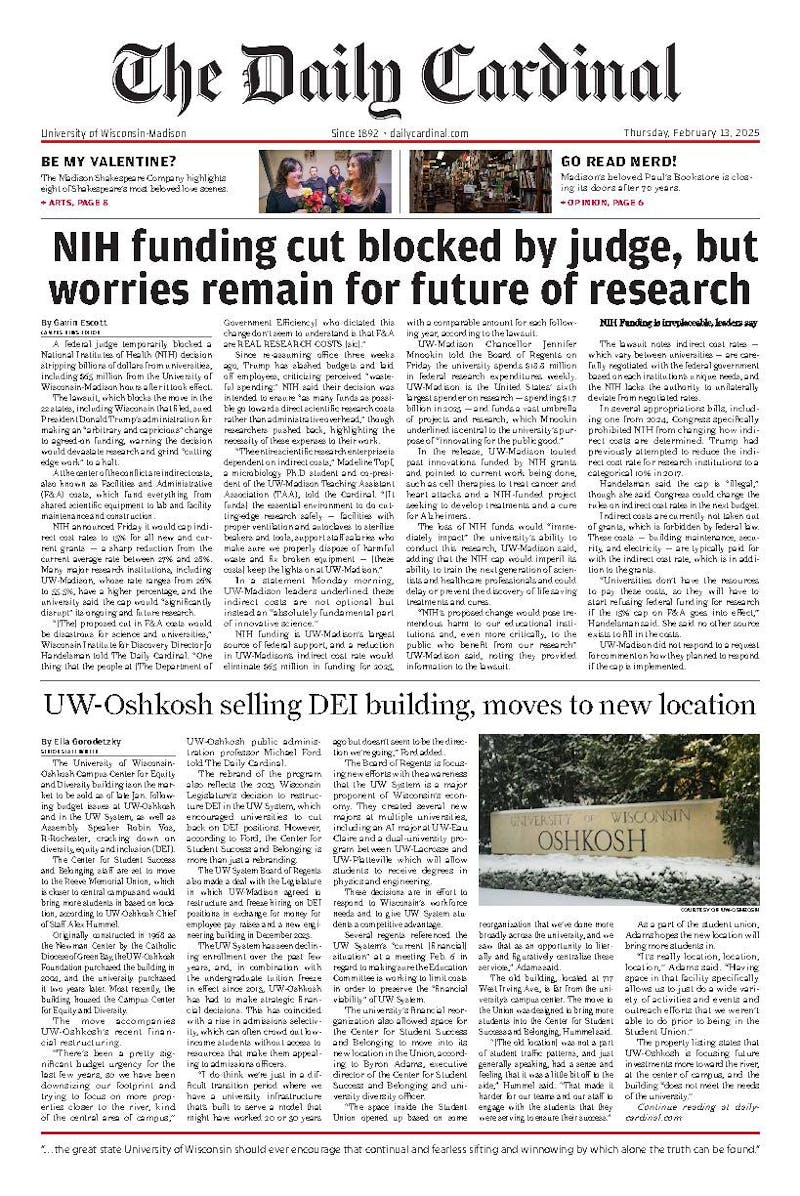There is a new scientific field in town, known as soundscape ecology. The field works to understand the noise heard in a particular ecosystem, what it says about the ecosystem and how it affects animals.
If the noises generated by an ecosystem change, then something major has changed within the animal and, probably, the plant kingdoms in the area. This is the basic premise behind soundscape ecology—it is a tool to understand how a natural landscape transforms over time.
Soundscape ecology is an entirely brand new field, first recognized in 2011. Yet it has already come to Wisconsin, a state with a very rich history in ecology research.
That rich history is due in part to Aldo Leopold, famous for founding the very first wildlife management program in the world, right here at the University of Wisconsin-Madison in 1933. Leopold owned a plot of land in Sauk County along the Wisconsin River, which he worked to restore as a natural ecosystem after it had been over-farmed by the previous tenants. Part of his management regiment was awakening at the crack of dawn and taking detailed notes on the birds of the property.
His notes were so detailed that two UW-Madison ecologists were able to recreate the forest “soundscape” of Leopold’s land in the 1940’s. Christopher Bocast, a UW Nelson Institute Graduate Student, and Stanley Temple, a UW emeritus professor of wildlife ecology and senior fellow of the Aldo Leopold Foundation in Baraboo, Wis., put together a set of electronic recordings from the Cornell Lab of Ornithology's Macaulay Library, based on Leopold’s observations. The project is helping them understand the extent of change over the past 75 years.
“The biggest change on the property itself is an amazing improvement of the habitat,” Temple said. “Leopold’s family initiated some of the earliest changes on the land, and here we are 75 years later, and the fruits of his labor are seen.”
Leopold planted thousands of trees on the abandoned farm and managed the land for wildlife habitat. Because of his work and ingenuity, today’s observer can hear a much richer diversity of bird species than they would have when Leopold was around. However, there is a source of sound that plagues the modern day woods that was not a problem in Leopold’s day.
“One thing that you can’t get away from, in terms of sound, is I-90,” Temple said.
Temple is referring to the interstate that now runs about a mile away from Leopold’s farm. Temple explained that in Wisconsin, it is almost impossible to get away from human generated noise.
One major goal of soundscape ecology is to understand how this human generated noise, “anthrophony,” affects animals that depend on sound. Anthrophony could drown out mating calls, it could make it harder to listen for prey or it could make it harder to hear a predator.
The consequences of human noise pollution are yet to be fully seen. This is a question future soundscape ecologist will work to answer, perhaps at UW-Madison.





